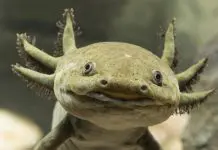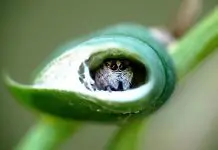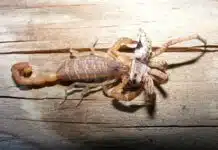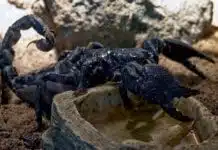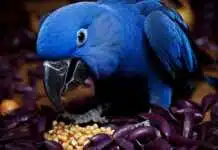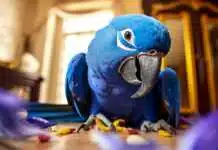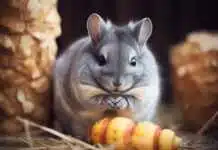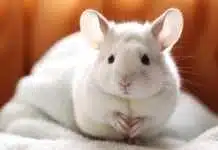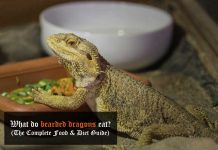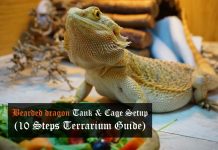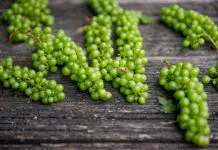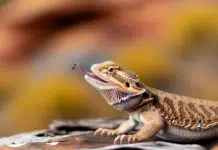The Importance of a Nutritious Diet for Your Furry Friend, the Degu
If you’re a proud owner of a degu, you know that these little creatures are adorable and charismatic. However, taking care of them requires responsibility and knowledge. One of the most important aspects of caring for your pet degu is ensuring they have a nutritious diet.
Degus are herbivores, which means that their diet should consist entirely of plant-based foods. Providing your degu with a balanced diet is essential to maintain their health and prevent certain medical conditions from developing.
A healthy diet can also help your pet maintain proper weight and live longer. Several factors should be considered when it comes to feeding your degus properly.
One important factor is their digestive system’s sensitivity to certain foods. Feeding them inappropriate items can cause serious digestive problems.
Another vital aspect is the quantity of food you offer since overfeeding or underfeeding can lead to obesity or malnutrition, both potentially dangerous situations for your furry friend. It’s essential to note that while there may be similarities between human and degu diets (e.g., vegetables), there are some key differences too.
Therefore, feeding your pets raw grains or other food commonly found in human diets could be harmful to them. In this article, we will delve into various factors that make up an ideal diet for pet degus.
We’ll explore what constitutes appropriate food sources like hay, pellets, and fresh vegetables/fruits as well as what foods should not be included in their meals. You will also learn about safe supplements and treats that you might include in your pets’ eating routines.
So sit tight! Let’s dive into how you can keep your furry friend healthy by providing them with a nutritious diet!
What do Degus eat?
Degus are herbivores, which means they eat a diet that consists solely of plants. Their wild diet is rich in leafy greens, grasses, and stems.
In captivity, degus require a balanced diet that mimics their natural habitat. A healthy degu diet should consist of hay, pellets, fresh vegetables, and fruits.
Main food sources for degus
Hay is the most important part of a degu’s daily diet. Timothy hay and orchard grass hay are great options for degus as it provides them with essential fiber that helps maintain digestive health.
Pellets are also a staple in a degu’s diet as it contains the right blend of vitamins and minerals that support healthy growth and development. Fresh vegetables provide an array of nutrients necessary for the proper functioning of the body systems in your pet.
Some ideal veggies to feed your pet include kale, parsley, carrot tops and spinach. Fruits should only be given occasionally to avoid excess sugar intake but some good options are strawberries or blueberries.
Importance of a balanced diet for degus
Providing your pet with a well-balanced diet ensures they have access to all the necessary nutrients needed to maintain optimal health conditions. An imbalanced diet can lead to malnutrition or obesity which may cause serious health problems such as dental issues or metabolic disorders. Degus consume high levels of fiber which aids digestion by providing energy while passing through the intestinal tract slowly hence reducing risk related to constipation among other gastrointestinal complications.
Foods to avoid feeding degus
Foods high in fatty content or sugar such as biscuits or chocolate contain low nutritional value hence posing danger on consumption leading to weight gain or metabolic disorders among other illnesses such as diabetes. Some vegetables like potatoes contain high-level carbohydrates inappropriate for digestion by these small rodents hence causing gastrointestinal complications.
Furthermore, degus can’t process food that is high in oxalic acid like spinach or kale which may cause kidney problems. Similarly, fruits with high sugar content should also be limited to avoid overconsumption of sugar.
Hay for Degus
Types of Hay Suitable for Degus
One of the most important parts of a degu’s diet is hay. Timothy and orchard grass hay are both excellent options for degus. These types of hay contain high levels of fiber, which is essential for keeping your pet’s digestive system healthy.
Alfalfa hay, on the other hand, is not recommended for degus as it is too high in calcium and protein. When it comes to choosing between Timothy and orchard grass hay, both options are great.
However, timothy hay tends to be a little softer and easier to chew than orchard grass hay. So if you have an older or less active degu, Timothy may be the better option.
Benefits of Hay in a Degu’s Diet
Hay provides many benefits to a degu’s diet. Firstly, it helps to keep their teeth healthy and worn down as they chew on it. Additionally, the high fiber content in hay helps to maintain good digestion and prevent gastrointestinal problems such as impaction.
Hay also serves as a source of mental stimulation and physical exercise for your pet. They will enjoy burrowing through piles of hay or gnawing on larger strands as they play.
How Much Hay Should a Degu Eat?
Degus should have access to unlimited amounts of fresh hay at all times. This means that you should provide your pet with enough hay so that they always have something to munch on throughout the day. It’s also important to remember that some degus may prefer certain types or cuts of hay over others.
If you notice your pet isn’t interested in their current supply of hay, try offering them a different type or cut before assuming they just don’t like it. When feeding your degu fresh veggies or pellets alongside their daily supply of hay, make sure that you do not overfeed them.
Providing too much food can cause a variety of health issues including obesity. Hay should always be the primary component in your degu’s diet.
Pellets for Degus
Nutritional Requirements in Pellets for Degus
When it comes to choosing the right pellets for your degus, there are a few important nutritional requirements that you should be aware of. Firstly, degu pellets should be high in fiber and low in fat and sugar. This is because degus are prone to obesity and diabetes if they consume too much fat and sugar.
In addition to this, degu pellets should also be rich in Vitamin C as these little critters cannot produce it on their own. When looking at the packaging of pellet mixes, look out for ingredients such as alfalfa meal, soybean hulls, or corn gluten meal.
These ingredients provide a good source of fiber which helps to keep your degus’ digestive system healthy. Pellets that contain dried fruits such as raisins or bananas may seem like a good idea but remember that these treats can be high in sugar so only feed them in small quantities.
Recommended Brands of Pellets for Degus
There are many brands of degu pellets out on the market but not all of them are created equal. One brand that is highly recommended by experts is Oxbow Essentials Chinchilla Food.
This food contains all the essential nutritional requirements needed by a healthy degu diet including high fiber and low-fat content. Another great option is Supreme Science Selective Degu which has been specially formulated with the correct amount of Vitamin C that your pet needs on a daily basis.
It also has no added sugars or artificial colors so you know your pet will only be getting the best. Other recommended brands include Mazuri Chinchilla Diet which contains alfalfa hay along with other essential vitamins and nutrients and Higgins Sunburst Gourmet Chinchilla Food which includes added probiotics to promote healthy digestion.
How Many Pellets Should A Degu Eat?
The amount of pellets that your degu should eat will depend on their age, weight and activity level. As a general rule, adult degus should be fed between 1-2 tablespoons of pellets per day.
However, this will vary depending on the nutritional content of the specific pellet mix you are using. If you are feeding your degus fresh vegetables and hay in addition to their pellets, then they may require fewer pellets.
It is important to monitor your pet’s weight regularly to ensure that they are maintaining a healthy weight. Overfeeding can lead to obesity and other health problems so it is important to feed your pet in moderation.
Choosing the right pellets for your degus is an important part of providing a balanced diet for these little creatures. Look out for brands that meet their nutritional requirements including high fiber, low-fat content, and added Vitamin C. Remember to feed them in moderation alongside fresh vegetables and hay, keep an eye on their weight and avoid adding treats that are high in sugar or fat.
Fresh Vegetables and Fruits for Degus
Safe vegetables and fruits to feed to your pet degus
When it comes to feeding your pet degu, it’s important to provide a varied diet that includes fresh vegetables and fruits. However, not all produce is safe for degus to eat.
Some fruits and vegetables can be harmful or even toxic. The good news is that there are plenty of options that are safe and healthy for your furry friend.
Some safe options include leafy greens like kale, spinach, and lettuce as well as crunchy veggies like carrots, celery, and cucumber. Fruits like apples (without seeds), blueberries, bananas, and strawberries can also be added in moderation.
It’s important to note that some foods should be avoided completely as they can cause digestive issues or other health problems. For example, onions, garlic, avocados, dried fruit with added sugar or preservatives are some foods that should never be fed to a degu.
Benefits of fresh produce in a degu’s diet
Fresh produce offers many benefits when added to a degu’s diet. Leafy greens contain essential vitamins such as vitamin C which is necessary for their overall health.
Carrots contain beta-carotene which helps keep their skin healthy while fruits provide antioxidants that help boost their immune system. Incorporating fresh produce also keeps your pet interested in its food by offering variety and promoting natural behaviors such as foraging making mealtime more stimulating.
How much fresh produce should a degu eat?
While feeding fresh produce is essential to a balanced diet it’s important not to overdo it – too much can lead to diarrhea or other digestive problems. Offer small amounts of vegetables daily (about 1-2 tablespoons) while keeping fruit intake limited due to their high sugar content – no more than once or twice a week or as an occasional treat. Ensure that each day degus get a variety of vegetables to ensure they receive all the necessary nutrients they need.
High-quality hay and pellets should always be the main source of food with fresh produce being offered as an additional supplement. Overall, feeding your pet degu a variety of fresh vegetables and fruit can provide essential vitamins as well as promote natural behavior like foraging.
However, moderation is key- offer small amounts of vegetables daily while keeping fruit intake limited. By providing a balanced diet, you’ll be sure to keep your pet happy and healthy for years to come.
Treats and Supplements for Degus
Safe treats and supplements that can be added to the diet
Degus are known to relish treats just like any other pet, but it is essential to be cautious about what you feed them. Safe treats include carrots, apples, strawberries, pumpkin seeds, sunflower seeds, and unsweetened cereals.
These snacks should be given in moderation because excessive amounts may lead to obesity or digestive problems. Another option for treats is hay cubes made from timothy hay or alfalfa.
These cubes provide a tasty treat while also promoting dental health by wearing down the degu’s teeth as they chew. When selecting commercial treat options, it is best to choose those specifically marketed for degus as these will be formulated with their dietary requirements in mind.
Importance of moderation when feeding treats
It is crucial to keep portions of treats small when feeding your degu friend. An excessive amount of any food can lead to health problems such as obesity or diabetes. As a rule of thumb, treats should make up no more than 10% of your pet’s total diet.
Treats should always be given in moderation and with caution with regard to their content. Sugary foods like candy and chocolate can cause serious health issues for your pet degu.
Recommended supplements that can be added to the diet
Although most degus receive enough vitamins from their diet alone if you’re worried your pet may need a boost, there are safe supplement options available. One popular supplement option for keeping your degu healthy is Vitamin C drops which are formulated explicitly for small animals like hamsters or guinea pigs. Additionally, some owners choose to add calcium supplements like cuttlebone or mineral blocks into their pet’s cage environment which can help with bone strength over time.
If considering adding supplements or vitamins to your degu’s diet, it is important to speak with your veterinarian first. They can help guide you in the right direction and ensure that the supplements are safe and appropriate for your pet.
Treats and supplements can be a great way to supplement your degu’s diet and keep them happy and healthy. However, it is vital to keep portions small, choose safe options, and consult with a professional before making any significant dietary changes. Remember that providing a balanced diet filled with plenty of hay, fresh vegetables, and high-quality pellets should always be the priority when it comes to ensuring the health of your furry friend.
Conclusion: Providing a Varied and Balanced Diet
Ensuring your degu’s diet is varied and balanced is essential to their overall health and well-being. A proper diet can help prevent health problems such as dental issues, obesity, digestive issues, and malnutrition.
As a responsible pet owner, it’s your duty to provide the best possible nutrition for your furry little friend. Throughout this article, we’ve discussed the three main food sources for degus: hay, pellets, and fresh produce.
Each of these food groups plays an important role in keeping your degu healthy. Hay should make up the majority of your degu’s diet.
Not only does it provide the necessary fiber for their digestive system, but it also helps keep their teeth healthy by promoting natural wear. Timothy or orchard grass hay is recommended for degus due to its low calcium content.
Pellets are a great source of protein and other essential nutrients that may not be found in hay alone. Be sure to choose pellets specifically formulated for degus with appropriate levels of protein and fat.
Fresh produce provides important vitamins and minerals that can help boost your degu’s immune system. However, it’s important to introduce new foods gradually to prevent digestive upset.
Treats should be given in moderation as they often contain high amounts of sugar or fat which can lead to health issues if overfed. Supplements such as vitamin C can also be added to ensure that all nutritional needs are being met.
Providing a varied and balanced diet is crucial in keeping your degu happy and healthy. By incorporating hay, pellets, fresh produce, treats (in moderation), and supplements (if necessary) into their daily routine you’ll have a happy little buddy who enjoys mealtime while remaining healthy!

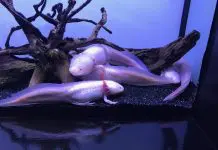
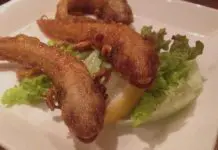
![Sick Axolotl, Fungus, Stress Symptoms [Axolotl Illness Guide 2025] Axolotl fungus](https://exopetguides.com/wp-content/uploads/2018/06/axolotl-218x150.jpg.webp)
